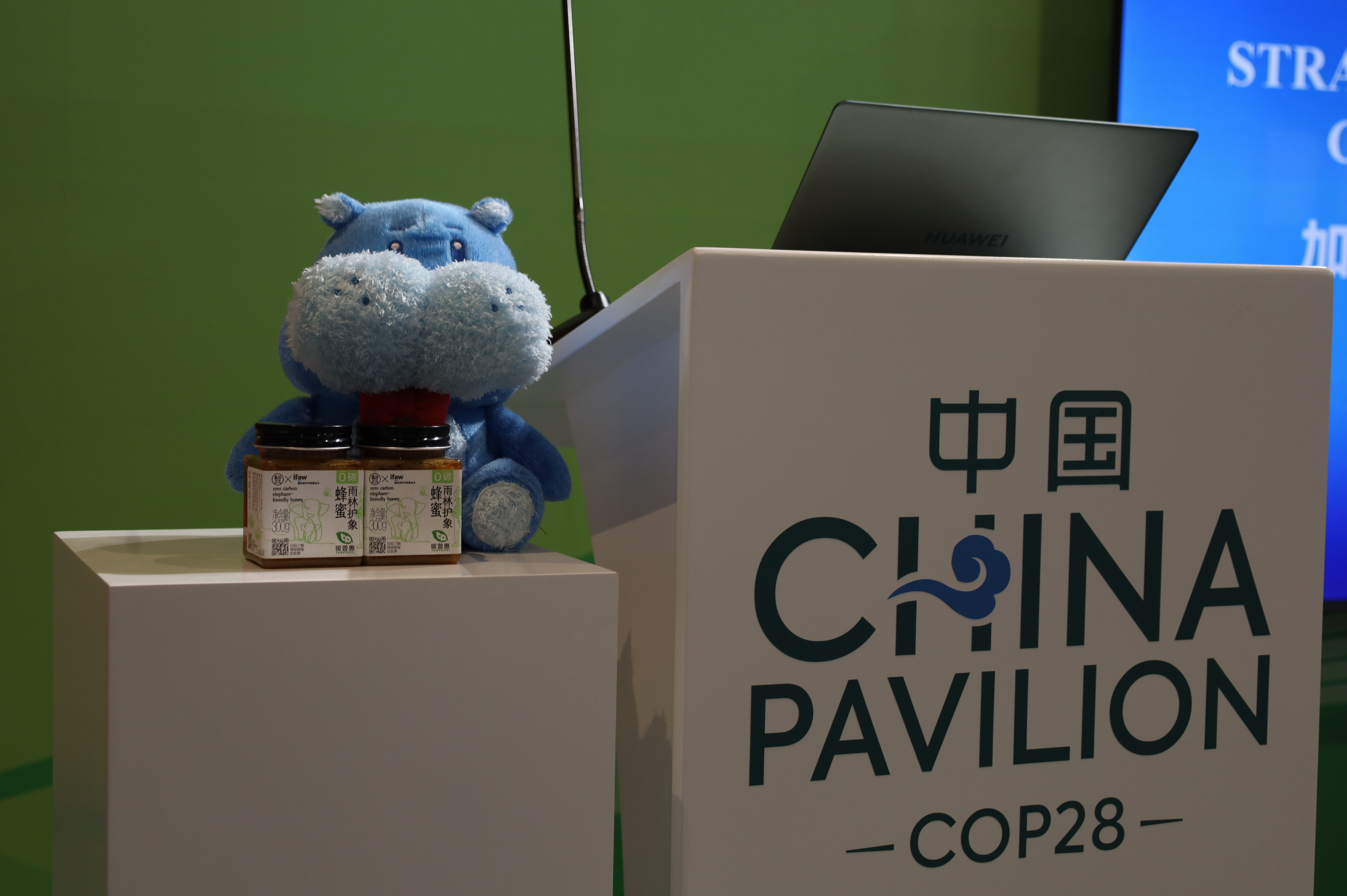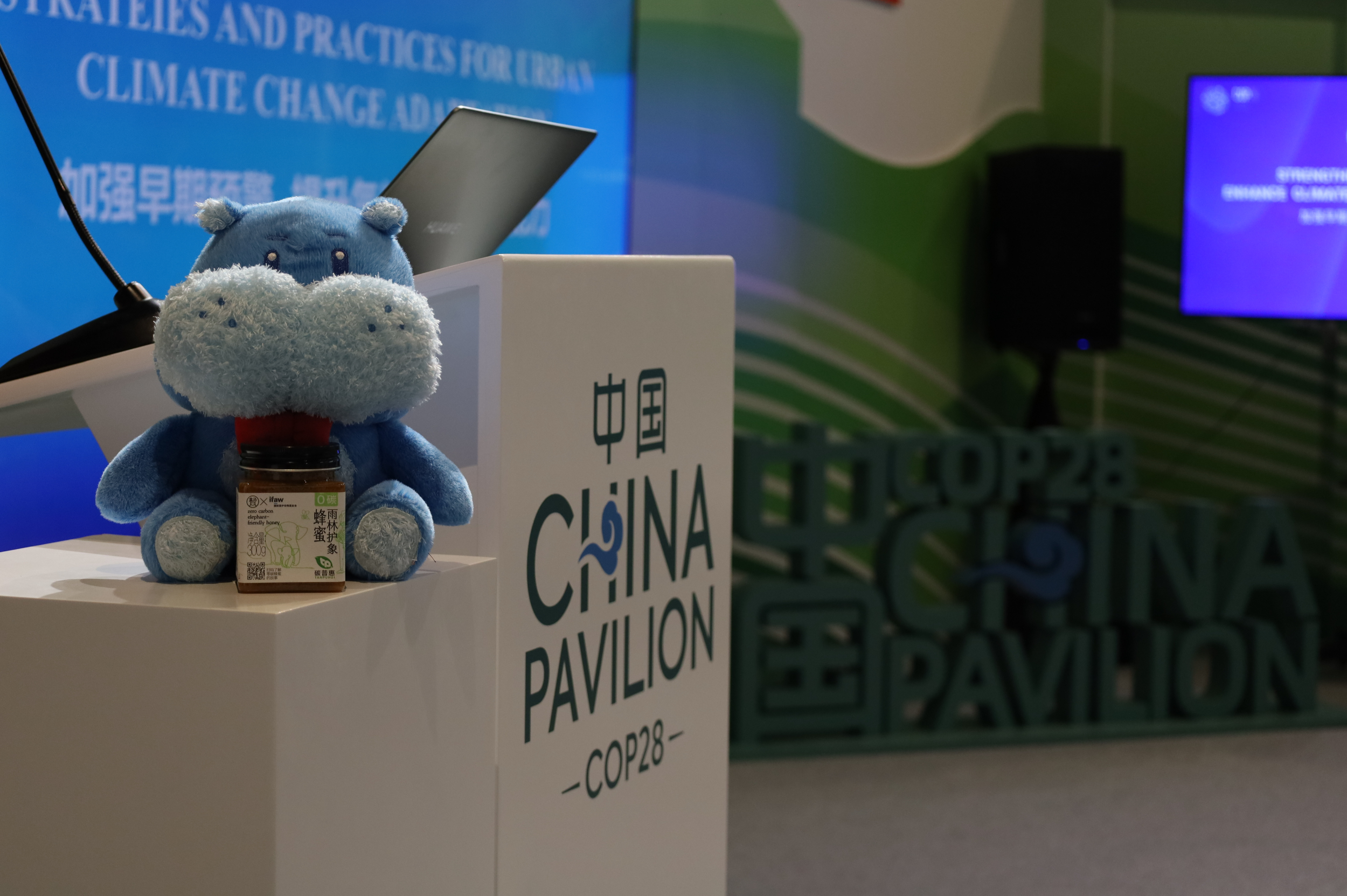Read the image | Zero-carbon elephant honey debuts at "China Corner"


Recently, China's first zero-carbon elephant honey jointly created by the International Fund for Animal Welfare (IFAW) and Hema was unveiled at the "China Corner" of the 28th Conference of the Parties to the United Nations Framework Convention on Climate Change (COP28), showing the world China's efforts and wisdom in addressing climate change. It is reported that in 2020, IFAW, Yunnan Xishuangbanna National Nature Reserve Administration and Xishuangbanna Tropical Rainforest Conservation Foundation jointly launched the "Community Livelihood Development to Promote Asian Elephant Conservation Project". In order to reduce the number of elephants encountered by villagers in the mountains to tap rubber, resulting in human-elephant conflicts, IFAW empowers villagers who are neighbors with elephants to have professional beekeeping skills. This limited-edition "elephant honey" to alleviate the human-elephant conflict in Xishuangbanna, Yunnan Province, was launched on Hema in March this year.
In the production and sales process of a bottle of honey, carbon dioxide emissions mainly come from product transportation, processing, packaging and other links, and the final bottle of "zero-carbon rainforest elephant honey" produces a total of 640.93 grams of carbon dioxide emissions. These carbon emissions will be neutralized through the solar water heaters used by the villagers, the distributed photovoltaic power generation system in the Mengyang community, and the 230 acres of eco-friendly cash crops planted with the support of the "Carbon Reduction Manor" project.
The project aims to explore a complex community development path that combines biodiversity conservation, energy conservation, carbon reduction, and rural revitalization.







